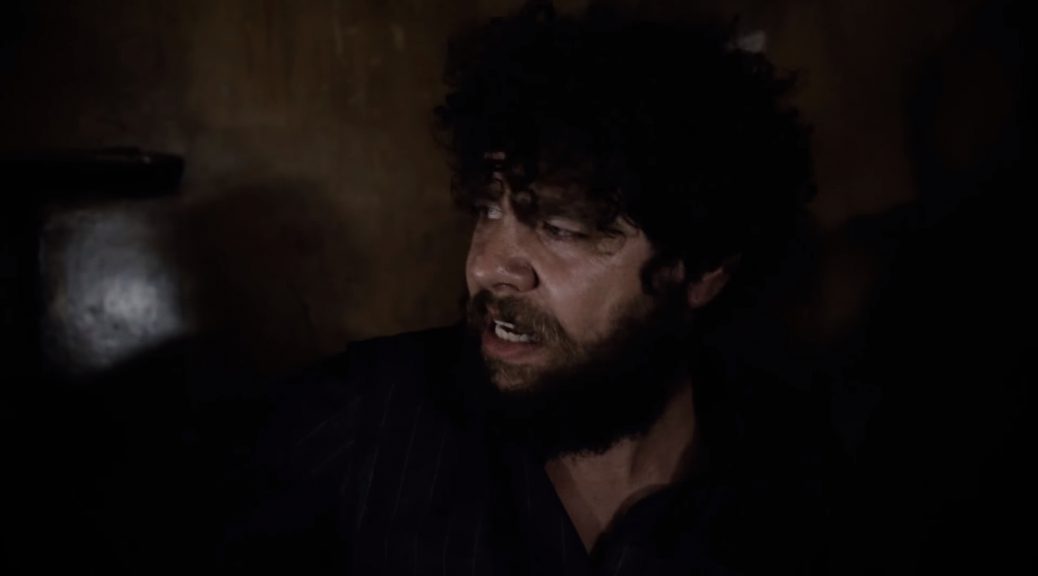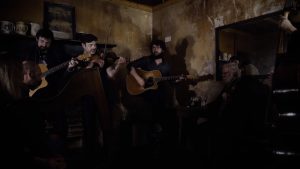Go Domhain I Do Chuimhne
Some have observed that winners write the history, losers write the songs.
While there is no shortage of Irish songs about British mistreatment of the Irish, it took 170 years for someone to create a whole album of songs the Irish Famine. Declan O’Rourke did that.
“Around 2000 or so, I learned that my granddad was born in a workhouse in Gort,” O’Rourke recalls, recounting the intrigue he felt at that discovery. “I didn’t really know what that meant but I wanted to find out more about it. About two months later, when I came across John O’Connor’s book. I opened it up on the bus on the way home that evening, and it hit me between the eyes. I had no idea that the workhouses had anything to do with the famine. I didn’t know much about the famine at all, the same as everybody else. “(from an Irish Times article)
Go Domhain I Do Chuimhne
From Clogman’s Glen…
In the beginning, O’Rourke brought us lakeside to the poor but thriving Clogman’s Glen.
In Along the Western Seaboard, O’Rourke allowed us to hear a parish priest’s pleas whose parishioners dying words were prayers for relief.
He sang of those who sought escape across the seas only to find ocean deaths in the ocean depths.
Declan invited us to a wedding: the poor boy to the girl with flowers in her hair. We witnessed their love. We stood beside helplessly as an Gorta Mór took all away.
Go Domhain I Do Chuimhne
…to Indian Meal…
We thought he’d written an upbeat tune only to find Declan fed us sandy Indian meal.
He introduced us to Mary Kate, a girl those with the means thought they were rescuing. We find the rescue is a forced one and one that inflicted decisions upon Mary Kate. We in turn are forced us to avert our reddened eyes.
We meet a starving father trying to explain to his starving sinless son that they’ve done nothing wrong despite the claims of a laissez faire government policy that objectified them and rationalized inaction.
The eighth chapter of his album, O’Rourke sets us atop a rattling wooden wagon and we hear the bones of a dead pauper sing their story.
Go Domhain I Do Chuimhne
…to Coffin Ships…
O’Rourke tosses us from the creaking cart and throws us inside the hold of a ship as cargo–we are within a coffin ship, we’ve gone from one open coffin to another. We listen to the true story of the coward Curry Shaw, the child of privilege, the one Fate allowed to live and leave behind frozen corpses.
Declan finally fillips a finger (or two) of revenge for us. We waited a long time, but it’s only a momentary draught.
Then an orphan, like the starving father, like Mary Kate, and the the poor boy, must attempt a fruitless rescue and face a thankless offer of aid.
Again aboard a ship that does not run into a reef of ice, but becomes a mass grave to which survivors and their descendants will one day built a monument to. A monument to remind us that many dead did die in vain.
Go Domhain I Do Chuimhne
Journey’s End
Where do we go from here. How to we bring our journey to an end.
Another Irish observation is that the while English may have killed the Irish language, but the Irish stole English in return.
In the end, O’Rourke speaks Gaeilge to us.
Like many things humans have tried to eradicate and seemingly succeeded, it turns out that the eradication failed.
According to an omniglot.com article “the 2016 census [showed that] 1.76 million people in Ireland claim to speak Irish; 73,803 speak it daily; 111,473 speak it weekly; 586,535 speak less frequently, and the rest rarely speak it. The main concentrations of Irish speakers are in the Gaeltachtaí, which are scattered mainly along the west coast of Ireland and have a total population of 96,090. On average 66% of Gaeltacht residents can speak Irish”
Go Domhain I Do Chuimhne
O’Rourke recites
Ach na dearmaid ar gcaithú,
Cuimhnidh lámh ar an mead,
A tháinigh muid tharais,
Más féidir linn cuimhniú,
Is teacht ar an tuiscint,
Is Más féidir linn tuiscint,
Maith an croí.
or…
But don’t forget our sorrows,
And all of our sadness,
Reflect on all that we have overcome,
If we can remember,
We can try to understand,
If we understand,
Good the heart
Thank you, Declan


